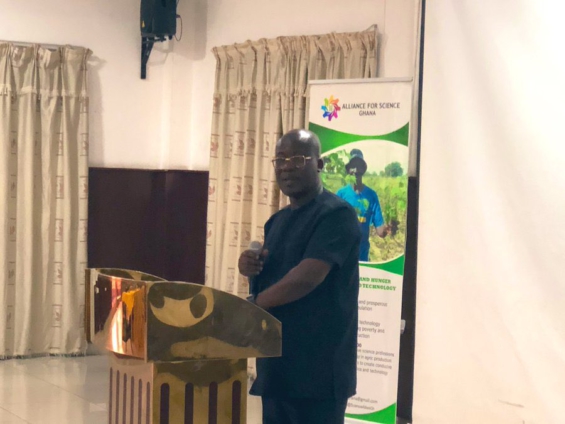Founding Director of the West Africa Centre for Crop Improvement (WACCI) at the University of Ghana Prof. Eric Yirenkyi Danquah, says Africa needs to adopt genetically modified organism (GMO) technology to help improve agriculture.
He said, “this technology is the most rapidly adopted innovation in the history of agriculture,” and Africa needs not to be left out.
“The time has come for African governments to use the data available to take decisions that would improve livelihoods and lift millions out of extreme hunger and poverty. We need political will for swift and innovative action,” he stated.
Prof. Danquah explained currently, there are only seven countries in Africa where GMOs are approved. In 11 other countries on the continent, GMOs are under development.
However, globally, over 190 million hectares of GM crops were grown in 29 countries in 2019, contributing significantly to food security, sustainability, climate change mitigation, and upliftment in the lives of up to 17 million farmers and their families worldwide.
Prof. Danquah was speaking at a science communication workshop in Accra organized by Alliance for Science, WACCI, International Institute for Tropical Agriculture (IITA), and the Open Forum on Agricultural Biotechnology (OFAB).
He spoke on the theme “communication as a tool for science-based evidence in decision making - a case for GMOs.”
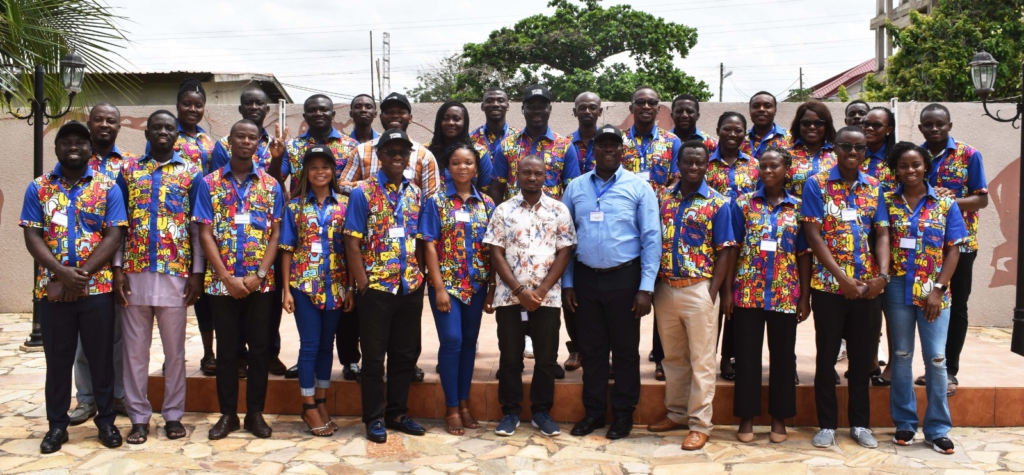
The four-day workshop themed, Speaking Science Ghana, brought together senior and junior scientists with academic institutions and research organisations across the country for training on best practices in science communication.
Prof. Danquah observed there is an urgent need for more food to be produced on less land with less chemicals.
“We must, therefore, use new thinking in our development agenda else we risk worsening the plight of a significant number of Ghanaians who go to bed hungry, who are malnourished and stunted,” he said.
“The development of improved varieties of our staple crops with high yields and resistance to the physical and biological stresses is absolutely necessary for a green revolution and food self-sufficiency in Ghana. This can be achieved with precision and efficiency using plant biotechnologies and genomics as important tools,” he noted.
Prof. Danquah told participants currently, the commonly used GMOs protect crops against insects and weeds; two of the major challenges that militate against crop yields and lead to crop failure worldwide.
Crops like maize, cowpea and soybean have been made either insect resistant or herbicide tolerant by the introduction of genes from different species using the GMO technology.
“The inescapable conclusion if we consider justice, the evidence and the urgency are that smallholder farmers in Africa need access to biotech crops (GM crops) more than farmers anywhere in the world,” he said.
He said there is a need to end misinformation that paints GMOs in a bad light.
“It is my hope that the participants at this workshop will be equipped with the knowledge and skills needed for better communication on the issues at stake to change minds and mindsets for the misconceptions to be erased, and to free our people including opinion leaders, policy planners and leaders, of mental slavery in the GM technology propaganda,” Prof. Danquah said.
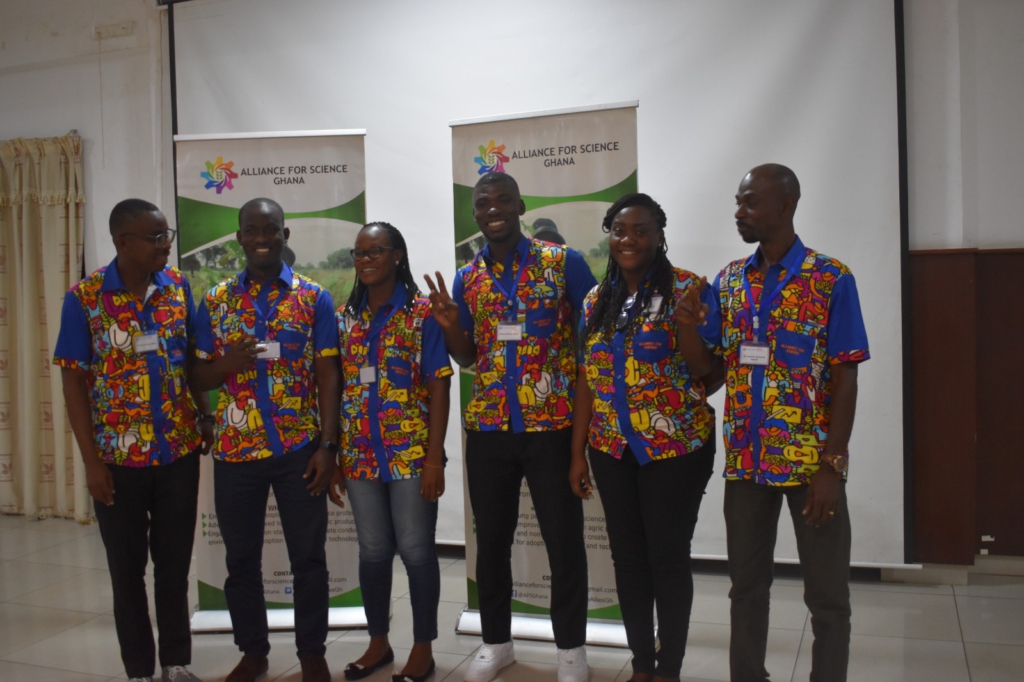
Joseph Opoku Gakpo of Alliance for Science explained the alliance is a science communication initiative that is working to promote science globally, whilst countering misinformation on scientific innovations and science issues like agricultural biotechnology (including GMOs), vaccines, and climate change.
He said, “communication skills are essential if scientists will be able to appropriately sensitize the public about innovative tools that can be used to tackle challenges like growing food insecurity, economic challenges, and the climate change.”
Dr Daniel Osei Ofosu who is a senior research scientist at the Biotechnology and Nuclear Agricultural Research Institute (BNARI) called on participants to be more vocal about the role of technology in agricultural production, so the public understands the issues better. He said science plays a huge role in helping improve agricultural production and all spheres of life.
GM crops under development in Ghana
Senior Research Scientist at the Savannah Agricultural Research Institute (SARI) of the Council for Scientific and Industrial Research (CSIR) Dr Jerry Nboyine explained efforts are underway to ensure approval for Ghana’s first GM crop, the pod borer resistant (PBR) cowpea.
The GM cowpea has been developed to resist the deadly pod borer which could cause up to 100% crop yield loss on farms. “With PBR Cowpea, farmers can attain the potential yields of most commercially released cowpea varieties which is about 2 tonnes per hectare. This is about a four-fold yield increment over existing yields,” he explained.
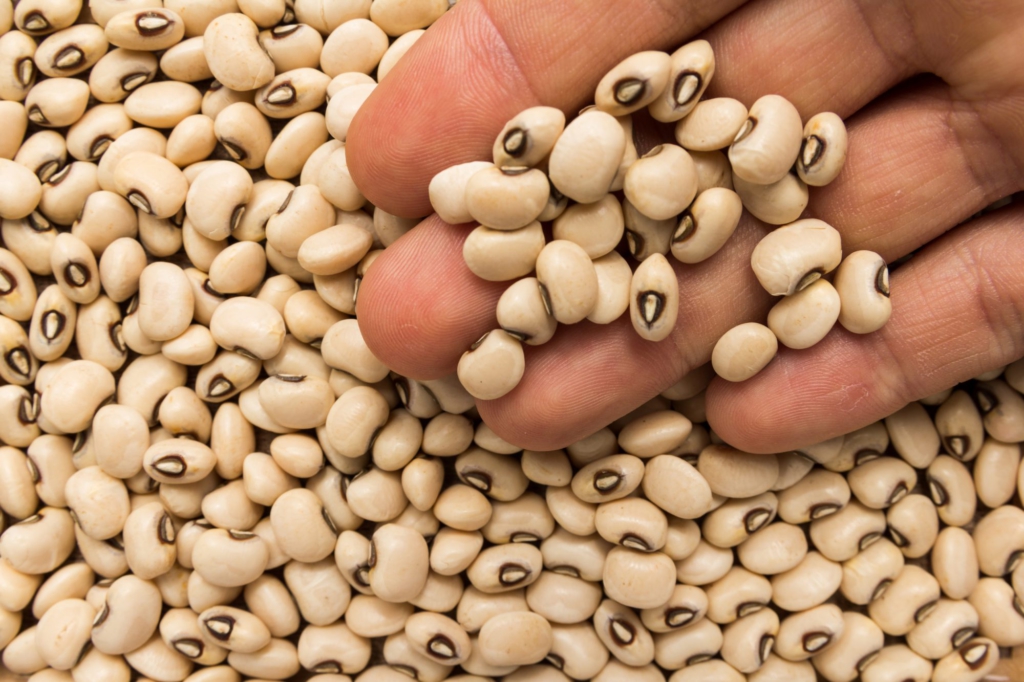
He said approval of the variety will help ensure “protection of our environment from hazardous insecticides, protection of cowpea farmers from pesticide poisoning, and protection of consumers from pesticide poisoning.”
“With GM cowpea, Ghana can attain food sufficiency in the area of cowpea production. Nigeria has commercialised PBR Cowpea and will soon export grains to Ghana informally. Our market women will buy cowpea from Nigeria and there is no guarantee that some PBR Cowpea will not be included in what is brought into Ghana,” he observed.
Dr Maxwell Darko Asante who is Deputy Director of the Crop Research Institute of the CSIR also told the participants Ghana is additionally developing a GM rice (NEWEST rice).
He said the GM rice being developed uses nitrogen efficiently, uses water efficiently and is salt tolerant.
“The lead Nitrogen – Use Efficient lines have a yield advantage of 15-30% compared to the non-GM version on nitrogen-deficient soils,” he explained.
He said if this crop gets adopted, resource poor farmers who cannot afford the recommended levels of fertilizer can still have good yields.
This will improve livelihoods, mitigate the effects of climate change, as well as help ensure marginal areas which cannot support rice production, could be cultivated.
Participants’ reaction
Research scientist at BNARI Dr Elaine Azu who participated in the science communication training said it has equipped her with the appropriate tools to communicate about science and technology’s role in agricultural production.
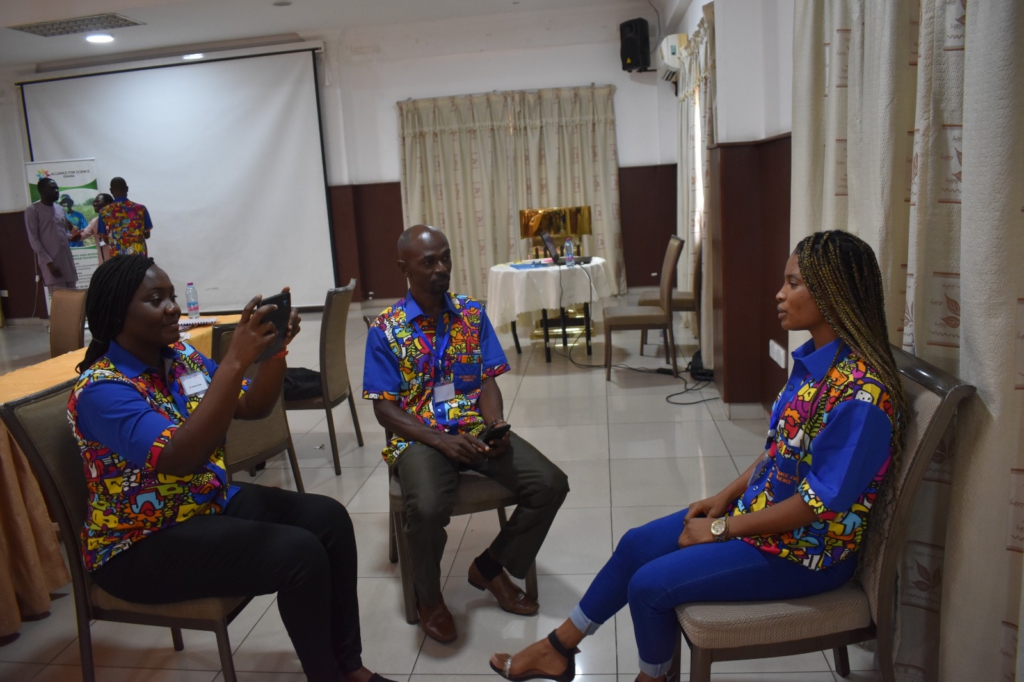
“Now I have the skills to be able to go out there… It’s time for the public to know what scientists are doing in the lab. To my fellow scientists, step out, and let people know how science can contribute to the development of Ghana,” she said.
Sandra Nsoh who is a teaching assistant at the Department of Biotechnology at the University for Development Studies told the media she learnt a lot from the workshop.
“I am a very good speaker, but this training has really sharpened my communication skills. One speaker said the new generation of scientists should be active on social media platforms. I intend to wake myself up and speak more about science,” she said.
Latest Stories
-
BoG statement on OTC withdrawals was timely – Ghana Association of Banks
11 minutes -
Fuel prices to witness biggest drop of 8% today, May 16 due to cedi’s appreciation
32 minutes -
PUWU urges government to renegotiate IPP contracts to curb revenue losses
34 minutes -
GITA, NUSPAW sign pact to improve working conditions of seafarers
34 minutes -
Africa-CDC Director-General lauds Mahama’s leadership in healthcare delivery
34 minutes -
Second Ghana Automotive Summit 2025 launched in Accra to promote locally assembled vehicles
1 hour -
FirstBank collaborates with Rotary Club to commission Berekuso Community Clinic
2 hours -
Needless Immigration and Police Checkpoints crippling the Volta Region
2 hours -
Forestry Commission engages industry players ahead of timber licensing regime
2 hours -
Constitutional Review Committee engages journalists, social media community
2 hours -
‘We’ve already hit IMF target’ – BoG Deputy Governor declares reserve milestone
2 hours -
‘We’re not burning reserves to hold the cedi’ – BoG Deputy Governor tells Joy News
3 hours -
Cedi stability backed by organic, non-debt creating reserves – BoG First Deputy Governor
3 hours -
‘I didn’t come here for fun’ – Afrikaner defends refugee status in US
4 hours -
Leading crypto firm Coinbase faces up to $400m hit from cyber attack
4 hours

